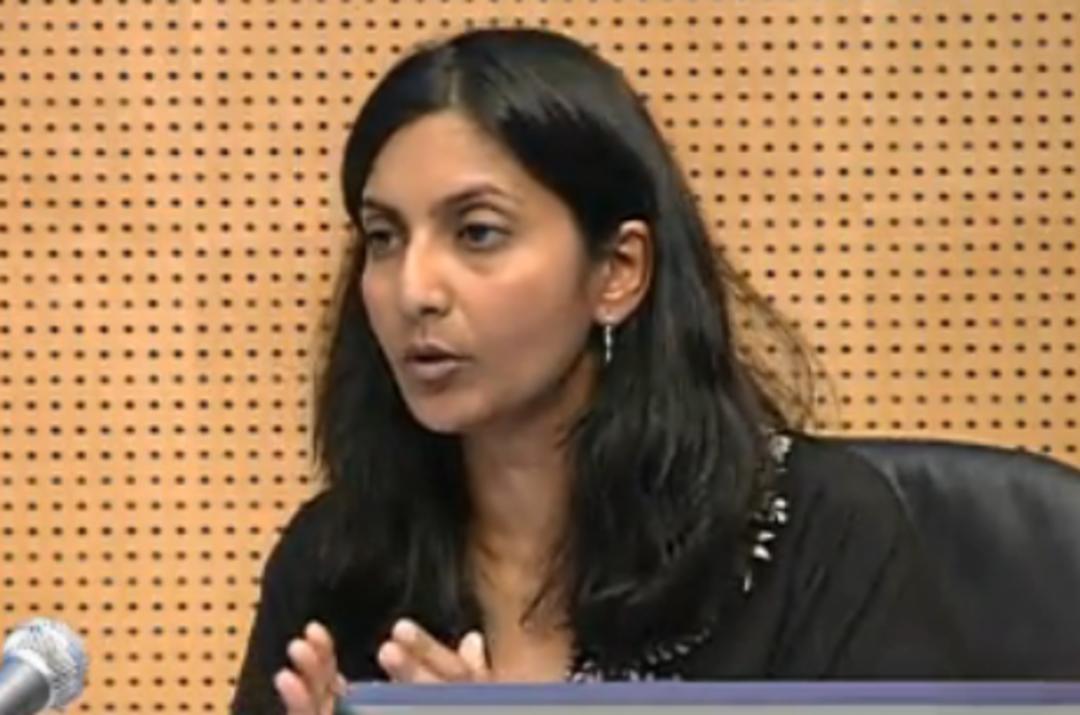Committee Unanimously Passes Murray Minimum Wage Proposal

In a council chambers packed with noisy supporters of the compromise as well as (even noisier) backers of the competing 15Now initiative, the city council's minimum wage committee voted unanimously (sans Nick Licata and Tom Rasmussen, who are both out of town) to approve Mayor Ed Murray's compromise $15 minimum wage amendment—approved by the mayor-appointed Income Inequality Advisory Committee earlier this month—with few amendments.
The legislation, though complicated (it phases in over three, four, five, or seven years, with ultimate parity for all businesses in 2025) will give Seattle the highest minimum wage in the country.
The legislation goes to the full council Monday, where 15Now activists, who are collecting signatures for an initiative that would implement a $15 minimum wage on January 1, 2015 for businesses with more than 250 employees and three years later for smaller businesses—are still hoping to pressure the council to adopt some of the labor-friendly amendments from city council member Kshama Sawant that failed this morning."A subminimum wage is demanded and liked by businesses because it makes it easier for them to lower wages as a whole."—Council member Kshama Sawant
Sawant, a 15Now member and one of the first to sign the initiative petition, was among the six who voted for the legislation. Assuming her vote holds on Monday, that's deflating news for the 15Now movement, of which she has been the most prominent supporter.
The underlying legislation works like this: "Big" businesses—those with 500 workers or more nationwide, including franchises like Subway and McDonald's—would have to reach a base minimum wage of $15 an hour in three years for employees who don't receive health care, and in four years for employees who do.
Businesses with fewer than 500 workers would also be phased toward $15 an hour, but over either five or seven years, depending on health care and whether their workers' total compensation includes tips. (It's actually a bit more complicated than that, but that's the gist.)
Finally, all businesses would have to pay a base wage of $18.13 by 2025, regardless of tips or health care.The less obvious winner? Council member Sawant, who can take (rightful) credit for pushing for and winning the highest minimum wage in the country, a victory that will win her (and Seattle) national attention and that, on a local level, proves that she sticks by her convictions but is also capable of compromise.
Today's discussion focused on a long list of amendments from council members. Among those that passed (and this is not a comprehensive list; some amendments were mostly technical):
• An amendment by Jean Godden recognizing that a majority of low-wage workers are women and that Seattle has "one of the worst gender wage gaps in the country."
• An amendment delaying the implementation of the law from January 1 to April 1, 2015. Sponsor Sally Clark said the city learned from the paid sick leave ordinance that employers needed time to figure out how to implement new laws affecting their businesses; Mike O'Brien countered that employers already have to increase the minimum wage every year under state law, and Sawant quipped, "Now that they’re going to get Christmas and New Year's, why are we going to give them April Fool’s Day and Easter as well?"
That proposal passed 4-3 (and prompted loud boos in the chamber), making it a candidate for reconsideration once the two absent council members are in the mix on Monday.
• A set of amendments allowing (but not imposing) subminimum "training wages" for teenagers, disabled workers, and people in apprenticeships or vocational programs. Training wages are allowed at the state level but are rare.
Nonetheless, this was probably the most controversial group of amendments, with supporters arguing that it would give teenagers and disabled people the best possible opportunity to get jobs (Bruce Harrell said an employer who had to pick between a deaf or blind candidate and an able-bodied person would probably pick the able-bodied candidate, and that a lower wage would give the blind person a better shot), and opponents arguing that it was discriminatory and would give employers one more way of exploiting workers.
"A subminimum wage is demanded and liked by businesses because it makes it easier for them to lower wages as a whole," Sawant said. O'Brien added that unlike when council members were teenagers, many teens today are saving money to help pay for college, or to support their families—particularly families in which English is not the parents' first language, making it hard for them to get a job that pays well. "We’ve always said that after the council passes an ordinance, we would come together and decide how to proceed."—15Now's Philip Locker
When those amendments passed, the 15Now supporters in the audience hissed at the council, prompting Clark to laugh and say, "Yes, we've never been hissed at before."
• An O'Brien amendment that would bar employers from threatening to reveal workers' immigration status to law enforcement if they complain about wage theft passed unanimously.
• And in a rare victory, Sawant convinced every council member but Harrell (who abstained) to support increasing the statute of limitations for workers to complain about wage theft from 180 days to three years. Clark cited the Lilly Ledbetter case, in which Ledbetter didn't know for many years that she was being paid less than her male counterparts but was told she couldn't sue because the statute of limitations was 180 days.
Sawant proposed several amendments that failed, including: An amendment to require a fine of at least $1,000 for a business' first wage theft violation; a proposal to give workers a private right of action, with penalties set at three times a worker's lost wages; an amendment that would remove tips from total compensation; and an amendment to simply implement the 15Now proposal.
Nonetheless, Sawant voted for the proposal. I expect she'll have a lot more to say about why she ultimately backed the measure at the full council vote on Monday.
15Now supporter (and near-constant presence at Sawant's events inside and outside City Hall) Philip Locker (who shouted "We'll be back!" at the council after the vote) says he doesn't know whether 15Now will continue its signature drive and ultimately file an initiative.
"That has to be decided by 15Now democratically" after Monday's vote, Locker says. "We’ve always said that after the council passes an ordinance, we would come together and decide how to proceed."
He added: "Today is a great victory for workers and Seattle's on its way to passing the highest minimum wage in the country, but the council showed its loyalty to its business backers when they voted for spiteful amendments to delay implementation, include a training wage" and reject tougher enforcement mechanisms.
Meanwhile, over on Facebook, IIAC member Dave Meinert, who owns several bars and restaurants and wanted the tip credit to be universal and permanent, threw a bit of a temper tantrum over the compromise, declaring himself "disgusted with this process," which he called a "charade."
It's long, so I encourage you to just go read it, but here's an excerpt that gives the gist:
This sort of bad faith negotiating took place throughout the process, as the Mayor’s staff, out of either incompetence or intentional dishonesty, continued to change what was agreed upon to something in draft form that reflected only what Labor leaders wanted. The final ordinance draft changed important elements of what was agreed on.
Finally, a quick Jolt analysis of today's vote. The obvious winner? Mayor Murray, who has unanimous council support for a proposal that was hard-fought and hard-won.
The less obvious (but maybe even bigger) winner? Council member Sawant, who can take (rightful) credit for pushing for and winning the highest minimum wage in the country, a victory that will win her (and Seattle) national attention and that, on a local level, proves that she sticks by her convictions but is also capable of compromise.




